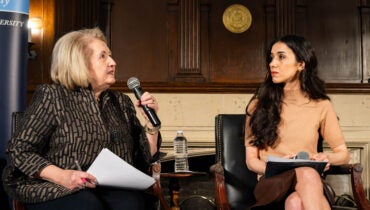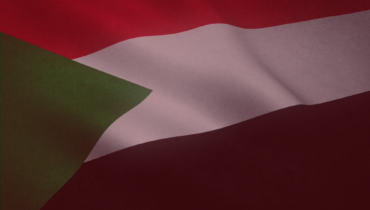The Commission on the Status of Women (CSW) session 61 is currently underway in New York City. The CSW is a functional commission of the Economic and Social Council (ECOSOC), and is charged with mainstreaming a gender perspective across UN activities. Since its first meeting in 1947, the Commission has been a forum for thought leaders, policymakers, and activists to formulate an inclusive agenda for women’s security and development. It has produced groundbreaking outcomes for women and girls around the world, such as drafting the Convention on the Elimination of All Forms of Discrimination against Women(CEDAW) and monitoring the implementation of the Beijing Declaration and Platform for Action. Unfortunately, the CSW continually misses its opportunity to serve as a change leader for lesbian, gay, bisexual, transgender, and intersex (LGBTI) communities. Ignoring LGBTI perspectives diminishes the mission of gender equality by excluding the experiences of lesbians, bisexual women, and transgender and intersex persons. LGBTI exclusion also disregards the overlap of constraints, research, and advocacy among the women’s and LGBTI movements.
The CSW has yet to make an explicit commitment to addressing gender identity and sexual orientation. The CSW Lesbian, Bisexual, and Transgender (LBT) Caucus has criticized the CSW for its lack of advocacy for the LGBTI agenda. The LBT Caucus statement from the 59th sessioncalled for “bold leadership” from governments, and a Post-2015 agenda that acknowledges the stigmatization, violence, and legally- and socially-condoned discrimination against lesbians, bisexual women, and trans and intersex persons. During last year’s 60th session, a paragraph proposed by the Government of Canada was deleted from the agreed conclusions: “the Commission expresses grave concern at acts of violence and discrimination, in all regions of the world, committed against individuals because of their sexual orientation and gender identity.”
This is not to say that the CSW excludes LGBTI participation, nor is it to say that there are not champions for LGBTI equality in the UN. NGOs that are members of the LBT Caucus have participated and led parallel events at CSW for years. Former Secretary-General Ban Ki-moon has been an advocate for LGBTI rights throughout his tenure, and now Secretary-General Antonio Guterres has been described as “generally dependable” on LGBTI issues. 12 notable UN agencies, including UN Women, UN Development Programme (UNDP), and the UN Human Rights Office of the High Commissioner (OHCHR) issued a joint statement on “Ending Violence and Discrimination Against Lesbian, Gay, Bisexual, Transgender, and Intersex People” in the days after the Sustainable Development Goals were signed (which notably excluded specific mention of LGBTI rights).
While these efforts are certainly encouraging, they stop short of a mandate that places LGBTI equality firmly on the global agenda for peace and development. As it stands, the rights of LGBTI populations rely on the siloed action of invested UN entities and LGBTI-friendly leadership. Sustainable development that truly “leaves no one behind” must mainstream an LGBTI-sensitive perspective across all activities—including those at the CSW.
As we enter the second week of the CSW, it is important to acknowledge that the session 61 agenda is well-suited to lead the charge in mainstreaming an LGBTI-sensitive lens. Like considerations of ethnicity, religion, or ability, the inclusion of sexual orientation and gender identity in the global women’s movement would engender the most inclusive and highest quality vision of gender equality. Moreover, it is imperative to acknowledge how patriarchal structures reproduce conditions of violence and exclusion that have shaped the women’s and LGBTI agendas. It is a disservice to both gender-sensitive and LGBTI-sensitive research and programs to continue to silo their strategies and lessons learned. The global movements for gender and LGBTI equality are deeply intertwined, especially given their shared challenges regarding violence, discriminatory laws and norms, and the economic cost of their exclusion. Producing a truly intersectional agenda from the CSW is not just a moral imperative; it is essential to maximizing allwomen’s security, freedom from discrimination, and economic prosperity.
Violence against women and girls has or will affect 1 in 3 women in their lifetime. Although official data is limited on homophobic and transphobic violence, anecdotal evidence and existing statistics point to widespread violence against LGBTI individuals. Almost 1 billion womenwill experience intimate partner violence or non-partner sexual violence, and lesbian women have reported experiences of “corrective” or “punitive” rape, which aims to “cure” them of their homosexuality. Violence against LGBTI people is considered a form of gender-based violence, for it is meant to serve as a punishment to those who defy gender norms. Achieving the end of physical and sexual violence against cis-women, LBT women, and LBGTI persons will only be possible by sharing strategies that counteract hateful norms and expand opportunities for survivors of violence.
Unfortunately, violence and discrimination are often condoned by unjust laws and social norms. The first report from the UN Secretary-General’s High Level Panel on Women’s Economic Empowerment estimates that there are 943 gender-differentiated laws across 170 economies, limiting women’s ability to participate fully in society and the economy. At least 76 states have laws that criminalize or harass LGBTI individuals: some of these laws criminalize consensual, same-sex relations; others prohibit trans individuals from leading authentic lives; and some violations of these laws carry the death penalty. Sexism and homophobia are used as political tools in which gender and LGBTI equality are positioned in opposition to “traditional values.” Rhetoric that espouses “morality” and “tradition” over equality and inclusion are affronts to both the women’s and LGBTI movements, and can only be subverted through a shared agenda that champions progressive laws and social norms.
This shared agenda must also include conditions that increase economic access for cis-women and LGBTI persons. The McKinsey Global Institute estimates that if women participated in the economy at the same rate as men, $28 trillion would be added to global GDP by 2025. A World Bank pilot study in India demonstrates that exclusion of LGBT people could cost their economy up to $32 billion year. Due to violence and discrimination, women and girls and LGBTI populations around the world face barriers in attending school, acquiring work, receiving health care, and achieving their full potential. This year’s CSW priority theme is women’s economic empowerment, demonstrating the urgency with which we must bolster the economic capabilities of marginalized populations.
The inability to acknowledge the overlap of constraints facing cis-women, LBT women, and LGBTI persons results in threats to their safety, development, and economic security. Although the women’s and LGBTI movements certainly have distinct goals, they share agendas related to the violence, discrimination, and economic exclusion that face their communities. Sharing best practices and leveraging political will can make the world a more equal place. This convergence must find a champion in the Commission for the Status of Women. The CSW cannot truly say it ensures the rights of women and girls if it does not explicitly advocate for the rights of all women and girls. In a world willing to render invisible the LGBTI community, the CSW has an opportunity to help others by helping themselves.
About the Author
Andrew Walker is the 2016-2017 Bank of America Fellow on Women and the Economy with the Institute. Previously, Mr. Walker worked at the Aspen Institute, where he provided systems and curriculum support to the Aspen Global Leadership Network. He has served as a student volunteer with the Institute, as well as a gender intern with Banyan Global, a women-owned international development consulting firm. Mr. Walker graduated cum laude from Georgetown University’s School of Foreign Service with a B.S.F.S. in International Politics and a certificate in Women’s and Gender Studies. His studies focused on women in international development and European integration, including a semester abroad at Trinity College Dublin. His senior capstone paper offered a postcolonial, human rights-based critique of the European Union’s 2016-2020 Gender Action Plan.

